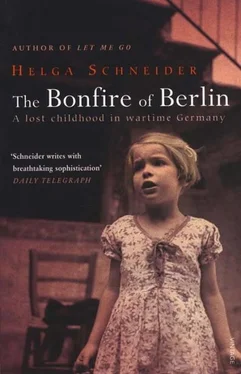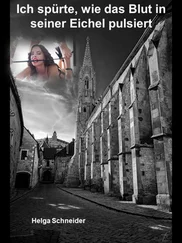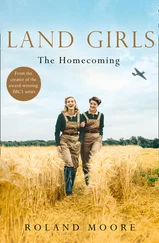We later found out that German troops were stationed nearby, along with some Russian mercenaries who had been recruited into the Wehrmacht . Those strange people hadn’t seemed so bad to me.
Every now and again I was gripped by a desperate feeling of abandonment and I felt different from the other children, who received letters from their families and sometimes even had visits from them. When the headmistress and Dr Löbig saw that I was unhappy, they went to great lengths to comfort me. Sometimes I hid in the shed, brooding behind the door among the pots, rakes and hoes; I had had no contact with my family since my arrival. However, during those days I learned to walk on stilts! Despite frequently falling headlong and grazing my knees, I persevered; I wanted to be the best girl in the school.
In September 1943 I started attending classes, but although I very much wanted to learn to read and write, my output was rather sparse. I was unable to concentrate. I felt fidgety all the time and was unsettled by the big hall in which three classes were taken by a single teacher. It was always extremely chaotic. The teacher was old and disagreeable, and she held her stick at the ready to bring it down on our fingers. I always yelled more loudly than the others, because I remembered being beaten by my stepmother, and consequently the teacher took a dislike to me. She started giving me so much homework that I was soon unable to perform my duties in the vegetable garden, the orchards or the kitchen, and my schoolmates started calling me a lazy-bones. I felt unjustly accused and became more and more miserable. My situation was aggravated by a form of nervous insomnia. I lay for entire nights with my eyes wide open; sometimes I got up, went to the bathroom, climbed on to the toilet seat, opened the window and listened to the vast darkness beyond the orchards, pierced every now and again by intersecting beams of light from the anti-aircraft emplacements. I often fell asleep just when it was time to get up, but fortunately I was allowed to sleep on. When I awoke, seeing that the others had gone to school without me, I felt terribly guilty, and went to the orchards or the kitchen to make myself useful. When the others came back, I was too ashamed to show my face. So I hid under the elder bush at the bottom of the vegetable garden, comforted by the damp warmth of the stagnant air that hung between the bean-poles and the lettuces.
The headmistress listened to the BBC to learn about the progress of the war, and one day I heard her reporting rumours about Berlin that frightened me. She said the city had been reduced to ruins and that the population was dying of hunger. I thought of my brother and felt profoundly anxious.
At the end of the summer of 1944, a woman came to the school saying she was Aunt Hilde. I didn’t recognise her.
‘Don’t you remember me?’ she asked severely, arching one eyebrow. I had a better look: a little hat with a veil (how I hated little hats!), eyes the colour of lead, a mole on the end of her nose, very thin lips painted scarlet, a dress patterned with bright little flowers which clashed wildly with the general mood of catastrophe. I stammered ‘Maybe… that is…◦– well… I don’t know.’ Giving me a remote and frosty smile, she said, ‘I’ve come to take you back to Berlin.’
She had caught me off guard. I glanced in confusion at the headmistress, who looked perplexed. But Hilde went on: ‘Wouldn’t you like to see Peter again?’
‘Yes!’ Peter was a little scrap of love I nurtured in my heart like a nestling. Peter was certainty, Peter was family.
‘Then get your things together,’ Hilde ordered, as though exploiting a moment of weakness.
I looked at her indecisively, uneasily, torn between yes and no, between the desire to see Peter again and the fear of going back to Berlin. People were saying awful things about the city, that there was destruction, hunger, desperation and air-raids day and night.
Once again I peeped at the headmistress, who looked seriously at Hilde and asked, ‘Are you sure this is the best thing for Helga?’
‘What do you mean?’ Hilde asked coldly.
‘I’m thinking of the situation in Berlin,’ the headmistress replied.
‘My dear lady,’ Hilde explained, scratching her mole, ‘I am here on the instructions of my sister, Helga’s mother. Under the circumstances I don’t believe that either my opinion or yours carries any weight whatsoever, do you?’
The headmistress shrugged impotently and said to me, ‘Go and get your things, darling. I have some details to sort out with your aunt.’
Head bowed, I went up to the dormitory and got my little case. The other children watched me. I had a lump in my throat and began to cry. Hans murmured, ‘You’re lucky you’re going home, but I’d like you to stay here,’ at which point I started crying in earnest. In the little entrance hall everyone had assembled to say goodbye, including the cook, the headmistress’s old parents, the headmistress herself and Dr Löbig. They all hugged me while I choked back my tears. I was afraid, especially of Hilde, who was so cold and authoritarian! Abruptly she picked up my little case and declared: ‘Right, then, time to go, we have a long journey ahead of us.’
The headmistress said to her, ‘I’d like to give you some of our jam.’
Hilde put the case back down and replied brightly, ‘Oh, I’d be delighted, you can’t get a thing in Berlin these days!’
While we waited, I was in torment. I had helped to make that jam, I had spent ages stirring the pans while Hans played the accordion! When the headmistress returned with a little jar I burst into tears again. Hilde whispered: ‘Might one know why you cry all the time?’ ‘I am not crying!’ I protested. Gulping, wiping my nose and squeezing my eyelids together as though wringing out a wet handkerchief, I stopped crying.
Finally we went out into the courtyard, and I saw my stilts propped up against the wall of the shed. ‘I want my stilts!’ I cried, remembering not only the terrible falls and the bloody knees but also the intense happiness of walking on them.
Hilde flashed me a look of contempt. ‘Don’t talk nonsense, Helga!’ she exclaimed as she dragged me towards the gate. ‘I want them!’ I insisted, and dug in my heels like a mule. I didn’t really want the stilts, I wanted to stay at the school; I didn’t want to be cast out of Eden to end up in the depths of Hell!
Once again I burst into floods of furious, rebellious, impotent tears. Giving me a handkerchief, Hilde exclaimed, ‘That’s enough of your snivelling!’ She was very annoyed. She shook her head, she shook her little hat, and she dragged me towards the gate, which clanged shut. The sound reverberated in my heart.
Even before we started walking, I was exhausted with weeping.
We turned into the main road. It reminded me of Hans, the wheelbarrow, the horse-dung and our encounter with the Russians who ate semolina porridge and made sweet black bread; I wept again. The road was very busy: a column of lorries full of women and children, carts and covered wagons, prams laden with bundles and cases, was heading inexorably westwards. Refugees or people fleeing the Russians.
After an interminable walk we reached the S-Bahn station, where we were told that the last train had left a few hours before. We prepared ourselves for a long wait by eating the two slices of bread the headmistress had given us for the journey.
Finally a train arrived. It approached slowly, almost nervously; its sides were dented, its windows gaping. An impatient crowd rushed towards it: soldiers, officials, Hitler Youth, a few civilians. Hilde and I managed to board a carriage. I was lost among all the legs in uniforms and boots. Hilde shouted, ‘Where are you?’ I pushed my way into people’s bottoms and received kicks and punches in return but finally found myself by Hilde’s side again. She had lost her hat, and her lipstick had been smudged all the way to her cheekbones, making her look like a clown.
Читать дальше












